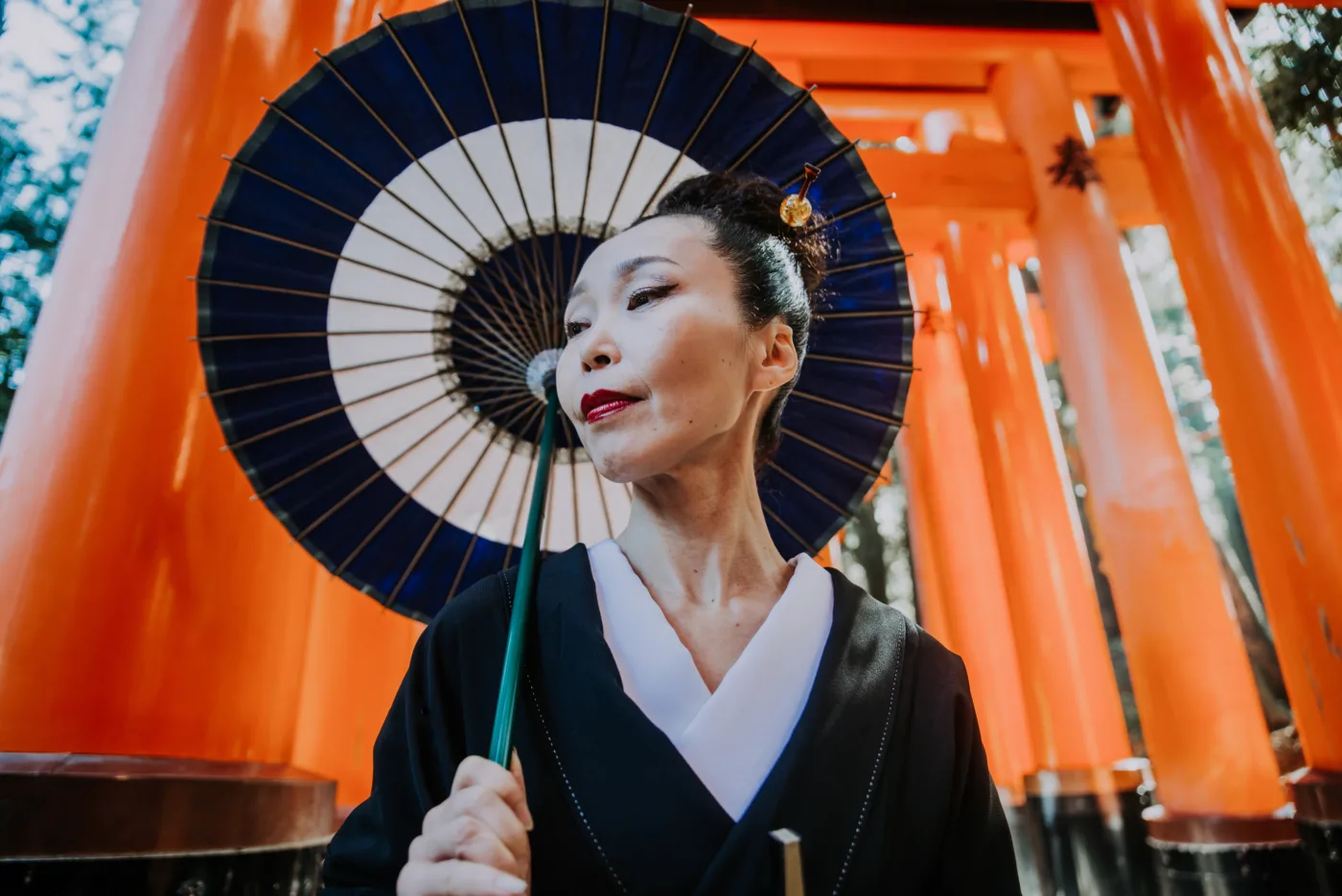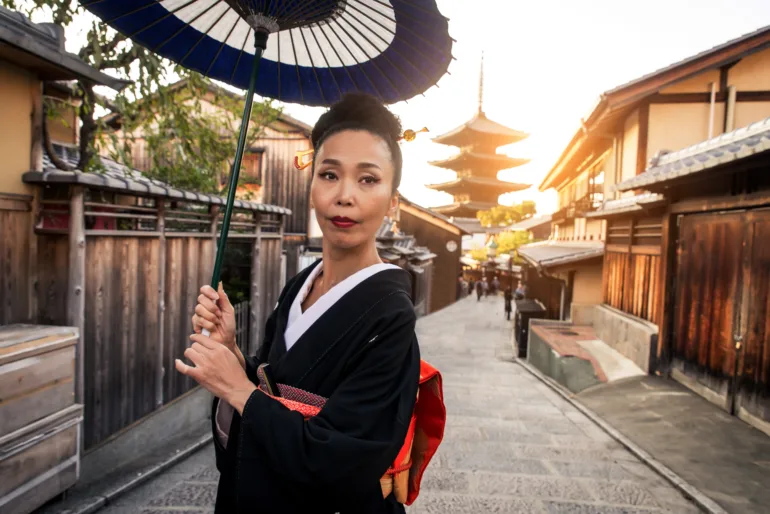Why are the Japanese so healthy and live so long? The answer lies in their unique daily habits. These are the secrets of longevity!
Secrets of longevity?! Japanese culture is known for its healthy lifestyle habits that promote longevity and well-being. These habits, which are passed down from generation to generation, include the care of body and mind and a deep respect for nature and social values. Read how you too can incorporate seven Japanese secrets for better health and a longer life into your everyday life.
1. Daily bathing in a warm bath
Hot springs, known as "onsen", are an integral part of Japanese culture. Every day, Japanese people relax in warm water, either at home or in public baths. A warm bath relaxes muscles, reduces stress and improves blood circulation. In addition, warm water helps to cleanse the skin and improve its elasticity, which contributes to a youthful appearance. Research has shown that regular warm baths reduce the risk of cardiovascular disease and strengthen the immune system.
2. Maintaining cleanliness
Cleanliness is one of the fundamental values in Japanese culture. This custom comes from Shintoism, which emphasizes cleanliness of the body and environment as an important part of spiritual life. The Japanese cultivate the habit of cleaning their home and surroundings from a young age. A clean and tidy home reduces stress and creates a pleasant living environment. In addition, regular cleaning helps prevent disease by reducing the presence of bacteria and other harmful microorganisms.
3. Daily exercise
Regular physical activity is crucial for longevity and health. The Japanese practice daily light physical exercises such as stretching, light walking, yoga and tai chi. These exercises not only keep you physically fit, but also improve your mental health and reduce stress. According to research, regular physical activity reduces the risk of chronic diseases such as diabetes, heart disease and osteoporosis. The Japanese often exercise outdoors, which further improves their well-being and connection with nature.
4. Getting up early
The Japanese value early rising, believing that the morning sun brings energy and a positive start to the day. Getting up early helps to harmonize the body's natural rhythm and improves general well-being. According to an old Japanese tradition, people gather in the morning to greet the sun together, symbolizing new life and fresh energy. This ritual helps them focus and prepare for the day's challenges. Research shows that getting up early improves productivity and mental sharpness, and promotes better sleep patterns.
@takestwoeggs Save this easy, healthy Oyakodon Recipe for when you need a nourishing easy meal 😍 This 15 minute Oyakodon, aka Japanese chicken and egg rice bowl, features juicy tender pieces of chicken, and caramelized onions simmering in an umami-rich broth mixed with a soft egg scramble and served over a warm bed of steamed rice. 📝 Ingredients – serves 1 * 1 boneless skinless chicken thigh * ½ tablespoon sake * ¼ teaspoon salt * ⅛ teaspoon white pepper * ½ cup dashi Japanese soup stock * 1 tablespoon soy sauce * 1 tablespoon mirin * 1 teaspoon sugar * 2-3 large eggs * ½ yellow onion thinly sliced To Serve * 1 cup cooked white rice * Green onion * Sesame seeds * Togarashi 👩🏻🍳 Instructions 1. Combine the chicken, sake, salt and white pepper in a bowl and set aside to marinate for 10 minutes . 2. In a small mixing bowl, add the dashi, soy sauce, mirin and sugar. Mix until the sugar has dissolved. Set aside. 3. Crack the eggs into a bowl and gently lift the egg yolks with a pair of chopsticks a few times. You want the egg whites not to be completely mixed into the egg yolks to resemble a marbled pattern. 4. In a medium frying pan over medium heat, add the onions and dashi mixture and simmer until fragrant about 1-2 minutes. 5. Then add the chicken and cook for 5 minutes flipping halfway until the chicken is no longer pink. 6. Then pour in the eggs and gently scramble the eggs with a rubber spatula until just set and the tops are a little runny. 7. Serve over a bowl of white rice, garnish with green onion, sesame seeds, togarashi and enjoy! . . . #oyacodonejapaneser#japaneserecipeeasyrecipe cooking #asianrecipes #ricerecipe #donburi #chickenrecipe
5. Eating Japanese food
The Japanese diet is known for its balanced nutritional value and healthy ingredients. Traditional Japanese meals include rice, fish, soy products, and stewed and pickled vegetables. Rice is rich in carbohydrates, fish and soy products provide protein, while vegetables provide vitamins and minerals. According to research, the Japanese diet is associated with a lower risk of cardiovascular disease, obesity and certain types of cancer. In 2013, UNESCO recognized Japanese cuisine as an intangible cultural heritage, which emphasizes its importance and impact on health.
6. Drinking matcha
Matcha, the Japanese green tea, is known for its many beneficial effects. It is rich in nutrients such as calcium, dietary fiber and antioxidants including catechins. Regular consumption of matcha reduces the risk of cardiovascular diseases, strengthens the immune system and improves mental acuity. Matcha also contains L-theanine, an amino acid that promotes relaxation and reduces stress while improving concentration and focus. The Japanese enjoy matcha for its taste and many health benefits.
@nioteas Why we use these small cups #japanesetea #yunomas #kyusu #japaneseteapot
7. Hiking
The Japanese landscape is rich in mountains and forests, where Japanese people like to walk and relax in nature. Regular hiking reduces stress, improves physical condition and brings inner peace. Nature is an important part of the Japanese way of life, as it is believed that being in nature improves mental and physical health. Research confirms that regular exposure to natural environments, such as hiking, reduces the risk of depression, anxiety and other mental disorders.
Conclusion:
With simple steps, you too can make positive changes in your life. Imitating Japanese habits can help you live better and live longer. Why not start today?







